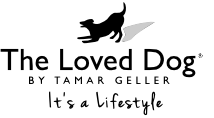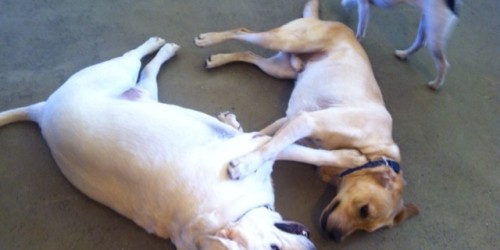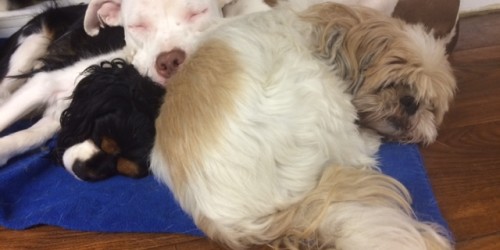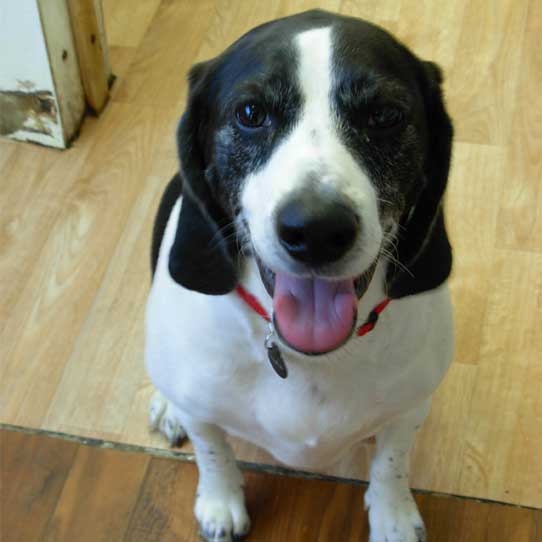Dog breeds aren’t distinctions that arose from nature, but are the result of centuries of selective breeding by human owners to enhance certain traits. Hounds and retrievers were bred for chasing prey, so they’ll keep you on your toes if there are small animals nearby. Terriers were selected for their ability to find and kill rats and will often “reward their owners” with their handiwork. Huskies and malamutes still have a lot of their original wolf characteristics, so be prepared for a lot of exercise and a strong prey drive. Beagles think with their noses. I often hear that Labradors make good family pets (and they do), but only after two to three years, when they outgrow their puppy phase (and if their tails are not at the same height as a child’s face, since they wag a lot!).

It’s not always easy to play with our dogs. The games our dogs (and kids) want us to play sometimes seem boring or as if they make no sense. When we get home at the end of a long, exhausting workday, the last thing we want to do is something silly or nonsensical. The idea of “playtime” might make us even more stressed, tired or cranky.
The truth is that playtime requires its own set of “muscles” that, for most of us, aren’t as strong as they used to be. But they’re still there, waiting for us to learn (or remember!) how to balance real-life demands with silly ways of playful connecting. Dogs can be a catalyst for us. Tuning into their hearts and minds, tuning into their needs, can help us to tune into our own. Which, in the end, might be tone of the greatest gifts that dogs give their owners: a chance to reconnect with their spirit of play.
Most behavioral problems–and a lot of physical problems, as well–arise when a dog lacks enough mental stimulation, when he doesn’t have anything to look forward to. A good rule of thumb is to try and surprise your dog at least once a day with an activity or an outing. It keeps their minds engaged and their mental batteries charged. Some dogs, especially highly intelligent breeds like border collies and Australian shepherds, require far more stimulation and many surprises.
When you end a game–or any other activity–it’s good to have a “release” word. Whether it’s tug of war, a walk, or a handful of treats, when I decide that the activity is over, I like to hold out my palms, facing upward, and say “No more” (even if I have more treats). It’s a simple act, but it allows you to “remove the batteries,” giving you a useful off switch when you’re dog wants to keep playing and you’re ready to collapse, or when he’s using his cutest face to try and convince a guest to give him food from a plate. Having an off switch allows your dog a lot more freedom to play out his wolf instincts–you know that you can stop him and redirect his focus with one word.
Cricket and I spent this morning teaching a class of high-schoolers in Michigan through Skype. It was so much fun!
I’m sooooo grateful for their teacher who reached out to me because they were studying my books and The Loved Dog method in their class.
Remember the last time the airline lost your luggage? You certainly weren’t happy about it, but how would you feel if the missing cargo wasn’t a suitcase but in fact the crate in which you last saw your dog? In this interview with SheKnows, I share the biggest dangers our pets face when flying on planes and what we can do to make airline travel more comfortable for our pets.
Special Cyber Monday offer: Visit The Loved Dog and receive a complimentary evaluation ($20 value) for your dog!
Please call 310-914-3033 for a reservation, or email reception@theloveddog.com to save a spot.
Evaluations are available through December 19, 2014. Hurry, as we are booking up fast!
From our family to yours, have a loving holiday season!
* Not valid with other price promotions. To redeem, print this offer and bring it with you on the day of screening.
Check out my article at Pet360,written by Deidre Grieves.
Although the origin of the domesticated dog is a topic of debate in scientific communities, the wolf still remains the modern-day canine’s closest living ancestor. The long-held belief that dogs evolved directly from the gray wolf was challenged this year when researchers found genomic evidence that links both dogs and wolves to a common wolf-like primogenitor. Even though the exact genesis of our four-legged friends is still a mystery, many commonplace dog behaviors can be explained by looking at the behaviors of wolves.
Check out my interview in LA WEEKLY, written by Gendy Alimurung.
Tamar Geller, “life coach for dogs and their people,” is sitting at a café in Venice contemplating her career thus far. “Oprah gave me the title. I did not call it to myself,” she says. The anointing happened about seven years ago, when Geller was flying in Oprah’s private plane to Oprah’s house in Chicago to live, for one month, with Oprah’s golden retrievers.
Geller is best known for her cruelty-free training methods, turning pets into “happy, joyful and well-mannered members of the family,” as her best-selling book, The Loved Dog, describes.
The energetic, 40-something blonde with the megawatt smile was not always a life coach for dogs. In her early 20s, she was an intelligence officer with the Israeli army’s Special Forces. They use dogs. Though she didn’t like the harsh way the military trained the dogs, she didn’t think much of it until after her service, when she went to the desert to, as she puts it, clean her mind.
A lot of people feel it’s unfair to treat their dogs differently, inadvertently creating even more tension among them as they work to establish their hierarchy. If one dog is clearly the leader–even if it’s a new dog–respect her position by greeting, feeding and walking her first.
For dogs, hierarchy is not necessarily determined by seniority. But if your older dog corrects a puppy, let her do your work for you–she’s helping by socializing the puppy and teaching him to be well-mannered and respectful towards other dogs.




